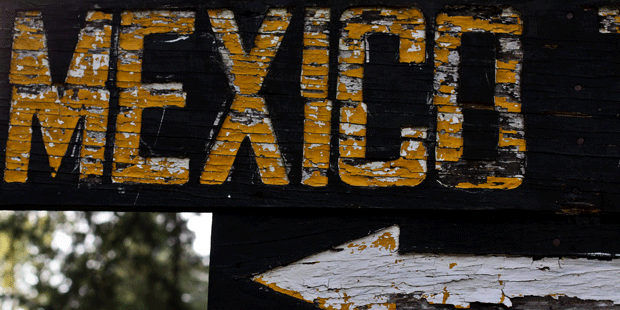President Trump’s recently proposed 20 percent tariff on Mexican imports isn’t just based on , writes International Boulevard’s Mateo Jarquin. There’s something deeper at play here:
Consider the disproportionate emphasis that Mexico receives in the context of all the NAFTA-bashing. Trump argues that Mexico has “beat [America] to a pulp” with “massive” trade deficits. Indeed, during the Obama years (2009-2016), the trade deficit with Mexico averaged roughly $58 billion. But with Canada, the other NAFTA signatory, that figure stood at a not-insignificant $26 billion during the same period. (Note, also, that Mexico’s population is more than three times larger than Canada’s). And while Trump pilloried General Motors for building its Chevrolet Cruze in Mexico – cars are an important part of his message surrounding manufacturing job losses – consider the fact that the U.S. imported $55 billion in vehicles from Canada in 2015 (roughly three quarters of the $74 billion in automobiles imported from Mexico that year).
Yet you don’t hear Trump complaining that Canada is “raping” the United States, like he claims about China. In fact, one of Trump’s leading economic advisors recently said that Canada has “special status” and is well-positioned for upcoming trade talks.
Trump’s obsession with the U.S.-Mexico commercial relationship – which has led him to float unhinged, self-destructive trade policies – isn’t just a casual extension of his domestic racism. It’s one of several signs that the new administration views international politics in disturbingly racial terms. Jeet Heer, a senior editor at The New Republic, recently identified this trend in a piece which suggests that Trump’s heterodox pro-Russia, anti-China stance is part of a greater, anti-Asian foreign policy strategy that would “divide the planet along racial lines.” He cites Vox’s Tez Clark, who argues that the President’s economic diatribes against Japan – which doesn’t send many immigrants to the U.S. and has had a stagnant economy for at least two decades – are informed by the “Yellow Peril” xenophobia that led the American government to pass anti-Japanese and anti-Chinese immigration laws in the late-19th and early-20th centuries. The proposed Muslim ban, while based on a religious criteria, is not far off.
Notions of racial superiority have tainted U.S. foreign policy towards Latin America in the past. In 1923, an American diplomat advised Secretary of State Charles Evans Hughes that “Mexico is and will continue to be governed by an Indian race of low civilization, and it would be a fundamental error to deal with such a government as with that of a highly civilized white race.”
Despite widespread acknowledgment of Trump’s openly racist views of Mexican immigrants in the United States, the racial undertones of his foreign economic policy have gone overlooked. Latin American leaders – especially the embattled Mexican President Enrique Peña Nieto – should take note as they make plans for dealing with the new administration.
Mateo Jarquin
28 Jan 2017




































